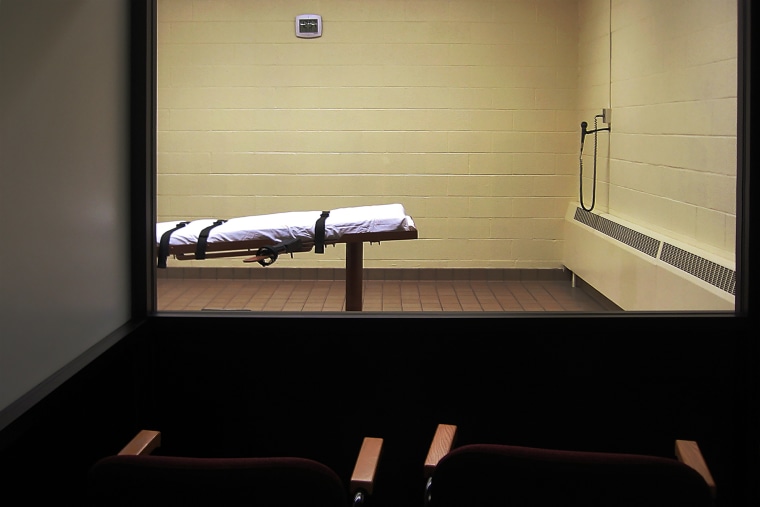When presented with complex challenges, Donald Trump generally likes solutions he perceives as simple. Concerns over undocumented immigrants, for example, led the president to demand a giant border wall. Pressed for answers on school shootings, he called for arming school teachers. Alarmed by a trade deficit with China, the Republican embraced a poorly thought out tariff strategy.
In Trump's mind, it's all quite "easy."
Similarly, earlier this year, Trump suggested executing drug dealers would help the United States resolve its drug problem. As of this week, there's another category of criminals the president is eager to put to death. From his Monday speech on the latest mass shootings:
"Today, I am also directing the Department of Justice to propose legislation ensuring that those who commit hate crimes and mass murders face the death penalty, and that this capital punishment be delivered quickly, decisively, and without years of needless delay."
The president referred to this as a possible "area of cooperation" to help prevent future mass shootings.
The trouble, of course, is that deterring mass shootings by threatening executions almost certainly won't work -- as Trump would know if he took the policy debate a little more seriously.
As the Associated Press reported, most who perpetrate mass shooters "don't live to face trial."
More than half the perpetrators of mass shootings since 2006 have ended up dead at the scene of their crimes, either killed by others or dying by suicide, according to a database compiled by The Associated Press, USA Today and Northeastern University.Death penalty scholars and psychologists say killers motivated by ideology are unlikely to be deterred by punishment. Most of them are willing to die or understand the risk and prepare for it. Some want the fame that an execution could potentially bring to their cause.
It's not surprising that the scholarship points in this direction, since it's very much in line with common sense. When gunmen commit mass murders, how many of them are principally concerned with fear of death? How many are likely to choose a different course because they're worried about the Trump administration's policy on capital punishment?
If Trump is looking for "areas of cooperation," he'll have to take the policy debate far more seriously.
